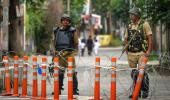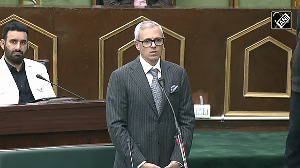Iran on Saturday threatened to launch an attack against the United Arab Emirates over its agreement to normalise relations with Israel, Arab News reported.

"The UAE's great betrayal of the Palestinian people ... will turn this small, rich country, which is heavily dependent on security, into a legitimate and easy target," said the Iranian hard-line daily Kayhan, whose editor-in-chief is appointed by Supreme Leader Ayatollah Ali Khamenei.
Iranian President Hassan Rouhani condemned the deal, saying the agreement between the two countries is a "betrayal of the Palestinian cause" and the UAE had made a "huge mistake".
Tehran has targetted Saudi civilians with missiles launched by its proxy forces in Yemen and Iraq and a security analyst told Arab News the new threat should be taken seriously.
"Iranian missiles could hit the UAE in eight minutes," said Dr Theodore Karasik Karasik, a senior adviser to Gulf State Analytics in Washington DC.
"They can target critical infrastructure, or they can simply target the desert in an act of psychological warfare. Recent Iranian naval exercises featured missiles that came from an underground launcher. This was new and set off an alarm. Nevertheless, Dubai and other urban centers are still considered safe zones," Karasik added.
On Thursday, Israel and the UAE agreed to normalise their relations, and an agreement on the mutual establishment of embassies is expected to follow in the coming three weeks.
In exchange, Israel said it would halt its plans to formally annex parts of the West Bank.
A joint statement of the US, the UAE and Israel said, "President Donald J Trump, Prime Minister Benjamin Netanyahu of Israel and Sheikh Mohammed Bin Zayed, Crown Prince of Abu Dhabi and Deputy Supreme Commander of the United Arab Emirates spoke today (Thursday) and agreed to the full normalisation of relations between Israel and the UAE."
As per the joint statement, delegations from Israel and the UAE will meet in the coming weeks to sign bilateral agreements regarding investment, tourism, direct flights, security, telecommunications, technology, energy, healthcare, culture, environment, the establishment of reciprocal embassies and other areas of mutual benefit.
"Opening direct ties between two of the Middle East's most dynamic societies and advanced economies will transform the region by spurring economic growth, enhancing technological innovation and forging closer people-to-people relations," the statement read.











 © 2025
© 2025